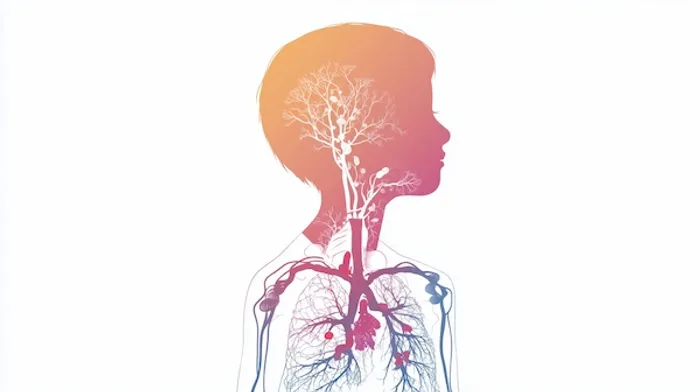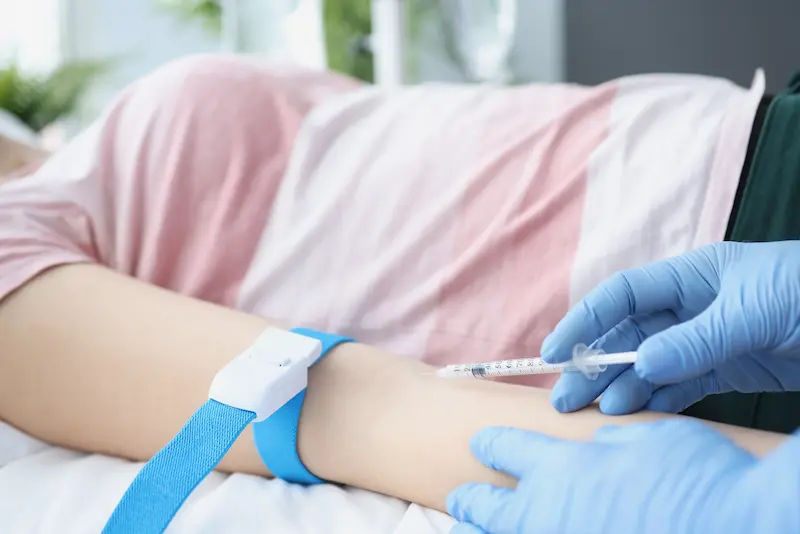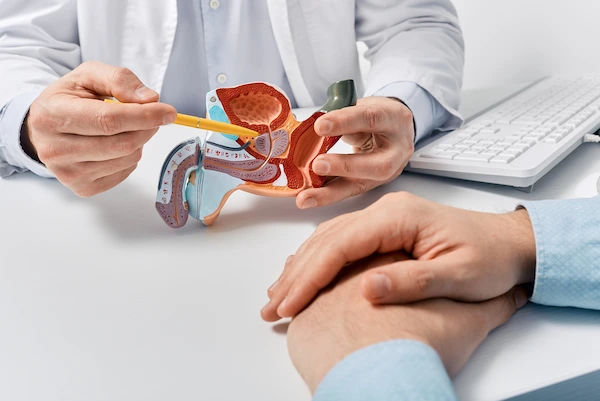Lymphoma Nodes Overview of Symptoms and Treatment
Know about the lymphoma nodes, what it is, common symptoms, causes, diagnosis and treatment options. Learn about the lifestyle tips for managing lymphoma.

Written by Dr. M L Ezhilarasan
Reviewed by Dr. D Bhanu Prakash MBBS, AFIH, Advanced certificate in critical care medicine, Fellowship in critical care medicine
Last updated on 13th Jan, 2026

Introduction
Lymphoma is a type of cancer that affects the lymphatic system, which is a crucial part of our immune system. It primarily involves the lymph nodes, but it can also affect other organs like the spleen, bone marrow, and liver. If you or a loved one has been diagnosed with lymphoma or is experiencing symptoms, it’s natural to feel concerned.
This article aims to provide a clear understanding of lymphoma, including its symptoms, causes, and available treatments, in simple terms.
What is Lymphoma?
Lymphoma occurs when white blood cells called lymphocytes grow abnormally and multiply uncontrollably. These cancerous cells accumulate in the lymph nodes, causing swelling and other health issues.
There are two main types of lymphoma:
1. Hodgkin Lymphoma (HL) – Less common but highly treatable, especially when detected early.
2. Non-Hodgkin Lymphoma (NHL) – More common and includes many subtypes, some of which grow slowly, while others are aggressive.
Consult a General Practitioner for Personalised Advice
Common Symptoms of Lymphoma
Lymphoma symptoms can vary, but the most common signs include:
• Swollen lymph nodes (usually painless, found in the neck, armpits, or groin)
• Unexplained weight loss
• Persistent fatigue
• Night sweats (soaking through clothes)
• Fever without infection
• Itchy skin
• Shortness of breath or coughing (if lymph nodes in the chest are affected)
If you notice any of these symptoms lasting for weeks, it’s important to consult a doctor. While swollen lymph nodes can also occur due to infections, persistent swelling should be checked.
What Causes Lymphoma?
The exact cause of lymphoma is unknown, but certain factors may increase the risk:
• Weakened immune system (due to HIV/AIDS, organ transplants, or autoimmune diseases)
• Infections (Epstein-Barr virus, Hepatitis C, or H. pylori bacteria)
• Family history of lymphoma
• Exposure to certain chemicals (pesticides, benzene)
• Age (some types are more common in older adults, while others affect younger people)
How is Lymphoma Diagnosed?
If lymphoma is suspected, doctors may recommend:
1. Physical Exam – Checking for swollen lymph nodes.
2. Blood Tests – To detect abnormal cell counts.
3. Imaging Tests (CT, PET, or MRI scans) – To locate affected lymph nodes.
4. Biopsy – Removing a small piece of lymph node tissue for testing.
5. Bone Marrow Test – To check if lymphoma has spread.
Early diagnosis improves treatment success, so don’t hesitate to get tested if you have concerning symptoms.
Get Your Health Assessed
Treatment Options for Lymphoma
Treatment depends on the type and stage of lymphoma, but may include:
• Chemotherapy – Uses drugs to kill cancer cells.
• Radiation Therapy – Targets and destroys cancerous lymph nodes.
• Immunotherapy – Boosts the immune system to fight cancer.
• Targeted Therapy – Attacks specific cancer cell proteins.
• Stem Cell Transplant – Replaces damaged bone marrow with healthy cells.
Many people respond well to treatment, especially for Hodgkin Lymphoma, which has high cure rates.
Lifestyle Tips for Managing Lymphoma
While medical treatment is essential, a healthy lifestyle can support recovery:
• Eat a balanced diet – Focus on fruits, vegetables, lean proteins, and whole grains.
• Stay hydrated – Helps flush out toxins.
• Exercise moderately – Light activities like walking can boost energy.
• Rest well – Fatigue is common, so listen to your body.
• Avoid infections – Wash hands frequently and stay away from sick individuals.
• Seek emotional support – Counselling or support groups can help cope with stress.
When to See a Doctor?
If you experience:
• Persistent swollen lymph nodes
• Unexplained weight loss or fever
• Extreme fatigue or night sweats
Consult a doctor immediately. Early detection improves outcomes.
Final Thoughts
Lymphoma is a serious condition, but advances in medicine have made it highly treatable. Recognising symptoms early and seeking medical help can make a big difference. Stay informed, follow your doctor’s advice, and maintain a positive outlook. Many people with lymphoma lead fulfilling lives after treatment.
Consult a General Practitioner for Personalised Advice
Consult a General Practitioner for Personalised Advice

Dr. Mainak Baksi
General Practitioner
13 Years • MBBS , MD (MPH)
Howrah
Mainak Baksi Clinic, Howrah
(50+ Patients)

Dr Suseela
General Physician
5 Years • MBBS
Bengaluru
Apollo Medical Center, Marathahalli, Bengaluru

Dr. Rajib Ghose
General Physician/ Internal Medicine Specialist
25 Years • MBBS
East Midnapore
VIVEKANANDA SEBA SADAN, East Midnapore

Dr. Sujay Jagatap
General Practitioner
5 Years • MBBS
Bangalore Rural
Ashwini Clinic., Bangalore Rural

Dr. Debdatta Pati
Psychiatrist
18 Years • MBBS, DPM, MD (PSYCHIATRY)
Kolkata
MCR SUPER SPECIALITY POLY CLINIC & PATHOLOGY, Kolkata
Consult a General Practitioner for Personalised Advice

Dr. Mainak Baksi
General Practitioner
13 Years • MBBS , MD (MPH)
Howrah
Mainak Baksi Clinic, Howrah
(50+ Patients)

Dr Suseela
General Physician
5 Years • MBBS
Bengaluru
Apollo Medical Center, Marathahalli, Bengaluru

Dr. Rajib Ghose
General Physician/ Internal Medicine Specialist
25 Years • MBBS
East Midnapore
VIVEKANANDA SEBA SADAN, East Midnapore

Dr. Sujay Jagatap
General Practitioner
5 Years • MBBS
Bangalore Rural
Ashwini Clinic., Bangalore Rural

Dr. Debdatta Pati
Psychiatrist
18 Years • MBBS, DPM, MD (PSYCHIATRY)
Kolkata
MCR SUPER SPECIALITY POLY CLINIC & PATHOLOGY, Kolkata



